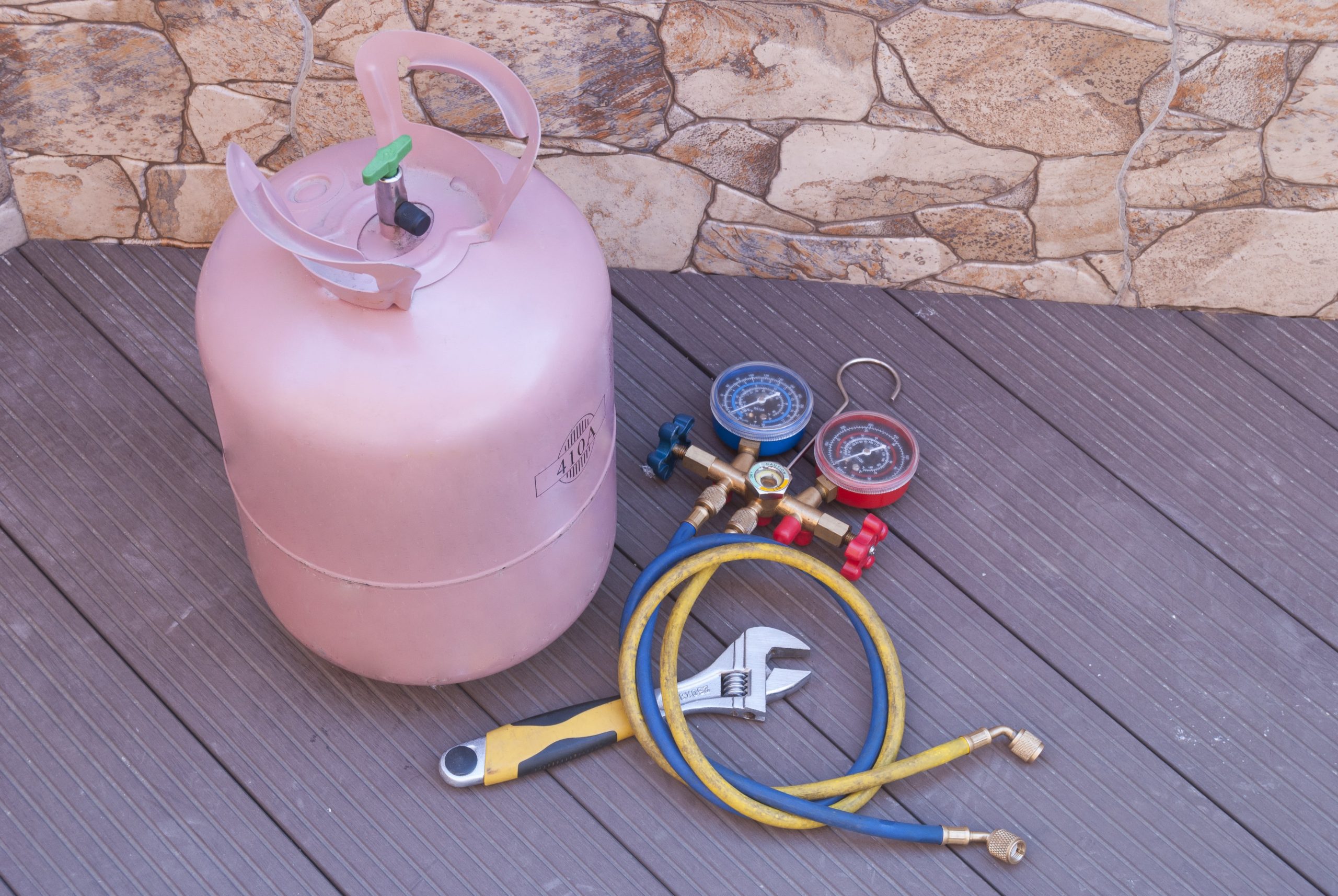5 Reasons Why Your HVAC Unit is Loud Do you find your HVAC unit excessively…

Why Does My Air Conditioner Need More Freon?
A couple of questions we get a lot in the summer are, “Why does my air conditioner need more Freon?,” and “What happened to the Freon that was already in it?”
These are good questions, and the answers might not be what you expect. Let’s take a closer look at one of the most common summer air conditioner issues so you’ll know exactly what’s going on when an HVAC technician tells you that your system needs a recharge.
What is Freon?
First off, let’s talk about what Freon actually means. Freon is actually the brand name for a refrigerant called R-22. But many people use the term “Freon” to refer to refrigerants in general, just like some people refer to all soft drinks as “Cokes.”
So depending on when your HVAC system was manufactured, it might actually use Freon, or it might use a different refrigerant, like R-410a. To keep things clear, we’re just going to use the term “refrigerant” instead of Freon from this point forward.
SEE ALSO: REFRIGERANTS OF THE PAST, PRESENT, AND FUTURE
SEE ALSO: DIFFERENCE BETWEEN R22 AND R-410A
Does the Air Conditioner Consume Refrigerant When It Runs?
No, your air conditioner does not consume the refrigerant in order to run. This is one of the most common misconceptions about why refrigerant levels get low.
The refrigerant in your HVAC is contained inside of a closed loop of coils. When the AC runs, all that happens to the refrigerant is that it gets turned from liquid into gas and then back into liquid. None of the refrigerant should be used up or lost in this process.
How Do Refrigerant Levels Get Low?
Since your HVAC doesn’t use up refrigerant when it runs, the refrigerant level will only drop if there’s a leak in the system. Sometimes these leaks are obvious. Other times they’re very tiny and difficult to find. But either way, if your HVAC’s refrigerant level has decreased, there must be a leak somewhere.
What Needs to Be Done When the Refrigerant is Low?
If the refrigerant leak is very tiny, just putting in more refrigerant may allow your system to work effectively for some time. However, eventually it will need to be recharged again because the leak is still there.
It’s like putting air into a flat tire that has a very small hole. You might be able to drive on it for a while, but if you don’t patch the hole, eventually the tire is going to go flat again.
In order to actually fix the problem, the HVAC technician needs to find the leak and determine whether it can be patched. Sometimes, there are many tiny leaks throughout the coils. In those cases, you may need to replace the coils or consider replacing the entire HVAC unit, depending on its age and other factors.
If the leak can be patched, then it must be repaired before the technician recharges the unit with refrigerant. Then the technician will run tests to check that the refrigerant pressure is correct so that the system is not overcharged or undercharged.
SEE ALSO WHY YOU CAN’T ADD COOLANT WITHOUT CHECKING FOR A LEAK
SEE ALSO: THE DANGERS OF HUFFING FREON
Why Doesn’t the Air Conditioner Work When the Refrigerant Level is Too Low?
In order to understand why your air conditioner can’t cool the air when the refrigerant is low, you need to know some basics of how an air conditioner works.
The air conditioner cools your home’s air by passing the warm inside air over the evaporator coils, which are filled with liquid refrigerant. The heat from the air is absorbed by the refrigerant, which causes the refrigerant to evaporate into gas. It’s just like boiling water on the stove to create steam.
The gas refrigerant passes into the compressor, which increases the pressure of the gas. When this high pressure, hot gas passes through the condensing coils, it releases heat into the outside air. As the heat is released, the refrigerant changes back into its liquid state—in other words, it condenses. Now it’s ready to pass through the evaporator coils again.
If the amount of refrigerant in the coils is low, then it won’t be able to absorb as much heat as it passes through the evaporator coils. Additionally, the compressor will overwork trying to get the gas to a high enough pressure.
The result is that your air conditioner will appear to be running, but the air coming out of your vents won’t be cold. The evaporator coils may freeze over, and the compressor can eventually break down.
Why Is Overcharging Bad?
While too little refrigerant is the most common problem, having too much refrigerant in the system will also hurt it. When a system is overcharged, not all of the refrigerant will get turned into gas in the evaporating coils. As a result, liquid refrigerant will go into the compressor, damaging it.
In other words, it’s very important to have a trained HVAC technician make sure that you have exactly the right amount of refrigerant in your system. Not too little and definitely not too much!


